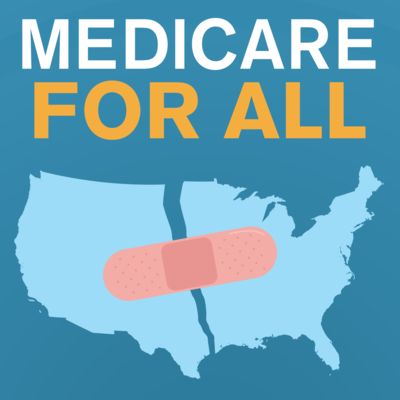episode 84: The Office
Today we bring you behind the scenes into our office at Healthcare NOW. Just like the TV show The Office, we have our hijinks and wacky characters, including some very smart interns! They have prepped some of their burning questions for this episode.
https://www.youtube.com/watch?v=YnG1C8DOZVY
First, from Intern Noah from Boston College:
In your opinion, what is the most effective way to organize/advocate for Medicare for All?
Talk to one person, then another person, and then another! It doesn't start with money, marches, or celebrity endorsements (though if Oprah wants to support M4A, she should give us a call!) Those feel good, but without authentic relationships and networks, they don't make change. Unfortunately there are no shortcuts in organizing; we have to build the power ourselves.
Do you have any funny stories from an experience meeting a member of congress?
Gillian remembers meetings with former Republican U.S. Senator from Massachusetts, Scott Brown. Unfortunately all Senator Brown cared about was how the policy she was advocating for affected Dunkin Donuts.
Gillian fondly remembers the time former U.S. Congressman Barney Frank told her that her hometown in New Jersey smelled bad. He also told a room full of constituents "the only thing that marches on Washington put pressure on is the grass in Washington, DC." Epic one-liner that we don't necessarily disagree with. (He already supported M4A so it was all good.)
Intern Gulmeena, a public health student asks:
When we talk about Medicare for all - are we thinking of a system with government run hospitals and government employed medical professionals? Do you think such a concept garners resistance or are people open to that paradigm shift?
One of the most common attacks on M4A is to call it "socialized medicine." Very few countries actually have real socialized medicine, where insurance is public, all healthcare facilities are owned and operated publicly, and the healthcare professionals are public employees. In the United States, Medicare for All legislation does not socialize the facilities or professionals. By focusing on the payment mechanism, it would give the government a lot of power to reign in the worst parts of for-profit healthcare. Ben notes he has seen a poll showing a majority of Americans support socialized medicine, so who knows, maybe that's the future of the movement.
Would Medicare for All include long term care for the elderly such as nursing homes and hospice?
This has been a debate within our movement for a long time. Both M4A bills include long term care. The House version is more generous and comprehensive. The Senate bill would cover home-based long term care but not institutional. Currently most people get long term (which also includes care for people with disabilities) care through Medicaid, the healthcare program for the poorest Americans; this forces patients to spend down all their assets to qualify. Medicaid also has an institutional bias: it's much more likely to cover care in residential settings rather than homes, which is usually more expensive. If you're interested in advocacy around this issue, check out Caring Across Generations.
Intern Ioanna (who hails from Greece, a country with universal healthcare):
Considering that you have been a part of the movement since before Medicare for All was introduced by Sen. Sanders in 2017, how did you first hear about single payer healthcare, and what drove you into the movement at a time when it was not getting much or any (?) media attention?
